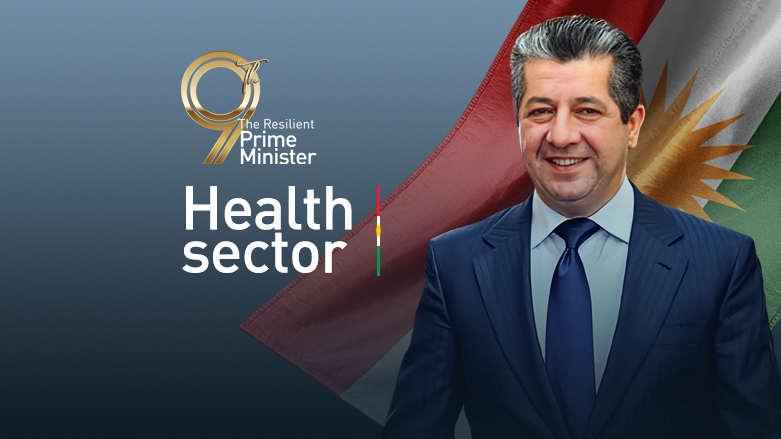KRG Ninth Cabinet underlines reforms in health sector

ERBIL (Kurdistan 24) – Despite a challenging economic situation and a halt in health assistance by the Iraqi government, the Ninth Cabinet of the Kurdistan Regional Government (KRG) made several reforms in healthcare.
During the four years of the Cabinet’s existence, 13 new hospitals have been built, bringing the number of hospitals in the Kurdistan Region to 45.
The construction and renovation of dozens of health centers and medical laboratories have been another part of the steps taken by the Cabinet to develop the health sector. The establishment of 26 oxygen tank factories has brought the number of oxygen tank production factories to 41. It also raised intensive care in public hospitals to 337 beds.
Furthermore, Kurdistan Region Prime Minister Masrour Barzani declared provisions for free examinations and treatment of autistic children in all public hospitals.
Regarding medicines, for the first time in the KRG’s history, the Ninth Cabinet regulated prescription drug prices. As a result, the Kurdistan Region's markets were in line with international standards.
The Ministry of Health regulates the prices of 230 different medicines through tenders.
In the field of pharmaceuticals, the Ninth Cabinet also worked to standardize medical supplies storage at Erbil and Sulaimani airports. It also established a central national warehouse for pharmaceuticals.
Concerning cancer patients, the Cabinet has continuously provided medical services and medicines to cancer patients in hospitals.
The Cabinet also provided 2.85 million COVID-19 vaccine doses to patients.
Lastly, several bills for the medical field have also been prepared by the KRG Ninth Cabinet for parliament, including bans on illegal drug manufacture and sale, patients' rights, doctors’ rights, health workers’ rights, and health insurance.
